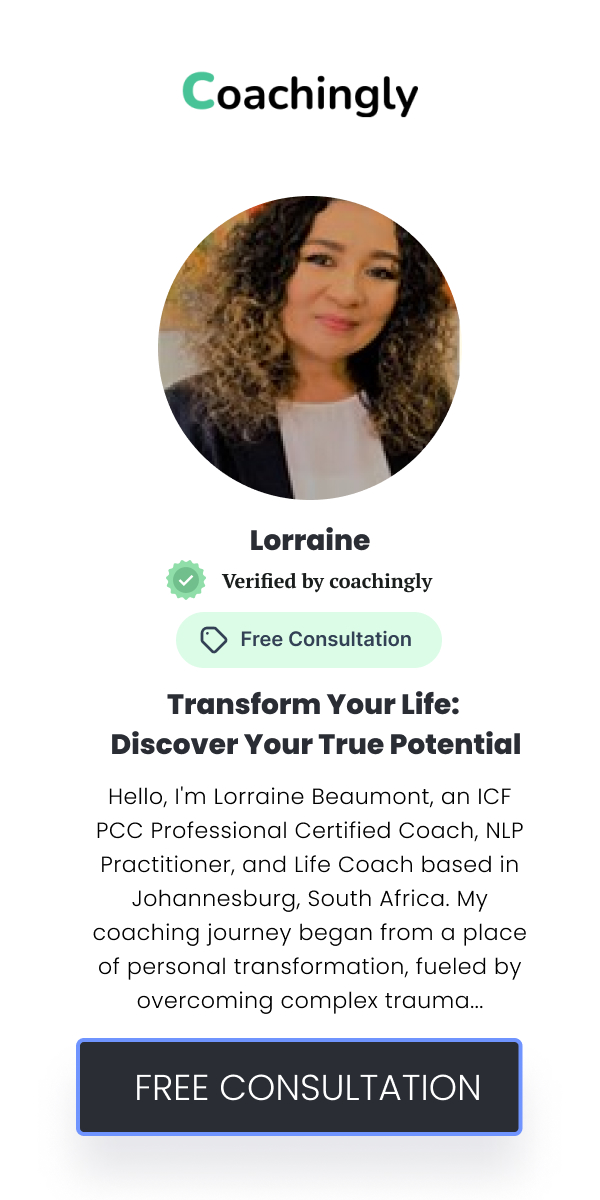
Mastering NLP Techniques: How to Excel as an NLP Practitioner
![]() Lorraine Beaumont
Lorraine Beaumont
![]() June 07, 2024
June 07, 2024
Neuro-Linguistic Programming (NLP) stands as a powerful tool for personal and professional development, rooted in understanding the connections between neurological processes, language, and behavioural patterns. To excel as an NLP practitioner, one must grasp the fundamental principles that underpin this transformative approach. NLP is founded on several core principles that shape its techniques and applications. Central to NLP is the concept of rapport, the ability to establish a harmonious relationship with others based on trust and understanding. This rapport facilitates effective communication and enhances the impact of NLP interventions. Another fundamental principle is sensory acuity, which involves sharpening one's awareness of non-verbal cues such as body language and tone of voice. By keenly observing these cues, an NLP practitioner can gain deeper insights into an individual's thoughts, emotions, and underlying motivations. Additionally, NLP emphasises outcome orientation, focusing on defining clear goals and aligning actions with desired outcomes. This principle guides practitioners in structuring interventions that are purposeful and results-oriented. Anchoring is a foundational NLP technique used to associate a specific stimulus with a particular emotional state or physiological response. By consciously pairing a sensory anchor, such as a touch or a word, with a desired state, such as confidence or relaxation, practitioners can evoke that state at will in future situations. Reframing is another essential technique that involves shifting perspectives to reinterpret a situation positively. Through reframing, individuals can break free from limiting beliefs and habitual patterns of thinking, thereby opening new possibilities for personal growth and behaviour change. The Meta Model, developed by Richard Bandler and John Grinder, provides a framework for understanding and challenging the linguistic patterns that shape our perceptions of reality. By identifying and addressing linguistic distortions, generalisations, and deletions, NLP practitioners can facilitate clearer communication and promote deeper understanding. Moving beyond the basics, advanced NLP techniques offer practitioners sophisticated tools for facilitating profound change. The Milton Model, named after the renowned hypnotherapist Milton Erickson, utilises ambiguous language patterns to induce a trance-like state of heightened receptivity and suggestibility. This technique is valuable in therapeutic contexts for promoting relaxation, enhancing creativity, and facilitating therapeutic breakthroughs. The Swish Pattern is an effective technique for replacing unwanted behaviours or responses with more desirable ones. By vividly imagining a trigger situation and swiftly replacing the undesirable response with a preferred behaviour, individuals can rewire their habitual reactions and cultivate more adaptive patterns of behaviour. Parts Integration is another advanced technique used to resolve internal conflicts and achieve inner alignment. By acknowledging and integrating conflicting parts of oneself, individuals can experience greater coherence and harmony in their thoughts, feelings, and actions. NLP techniques are widely applied in coaching and therapy settings to enhance personal development and facilitate positive change. In coaching, NLP interventions such as anchoring and reframing are used to help clients overcome obstacles, clarify goals, and unleash their full potential. These techniques empower individuals to navigate challenges with resilience and adopt new perspectives that support their personal and professional aspirations. In therapy, NLP techniques complement traditional therapeutic approaches by offering tools for addressing psychological issues, improving self-esteem, and fostering emotional well-being. By integrating NLP techniques into coaching and therapy practices, practitioners can tailor their interventions to meet the unique needs of each client and facilitate transformative outcomes. Ethical considerations are paramount in the practice of NLP, ensuring that interventions are conducted responsibly and with respect for the individual's well-being. Practitioners must adhere to ethical guidelines that prioritise informed consent, confidentiality, and the empowerment of clients. It is essential to establish clear boundaries and maintain professional integrity throughout the coaching or therapeutic process. By upholding ethical standards, NLP practitioners cultivate trust and create a supportive environment conducive to personal growth and positive change. Mastering NLP techniques is an ongoing journey that requires dedication to continuous learning and professional development. There are numerous resources available to support practitioners in expanding their knowledge and honing their skills. Books authored by NLP pioneers and contemporary experts offer in-depth insights into advanced techniques and practical applications. Additionally, specialised courses and workshops provide hands-on training and opportunities for supervised practice. Peer supervision and networking within the NLP community offer valuable support and mentorship, enabling practitioners to exchange ideas, share experiences, and receive constructive feedback. By actively engaging in continuous development, NLP practitioners enhance their effectiveness and expand their capacity to facilitate meaningful change in others. While NLP offers powerful techniques for personal transformation, practitioners may encounter challenges along the way. Common pitfalls include misapplication of techniques, resistance from clients, and ethical dilemmas. To overcome these challenges, practitioners must maintain humility and a commitment to ongoing self-reflection and improvement. It is essential to adapt techniques to suit individual client needs and preferences, ensuring that interventions are tailored and respectful of personal boundaries. By cultivating flexibility and resilience, NLP practitioners can navigate challenges effectively and uphold the highest standards of professional practice.Understanding NLP Fundamentals
Essential NLP Techniques
Advanced NLP Techniques
Integrating NLP in Coaching and Therapy
Practising NLP Ethically
Continuous Development as an NLP Practitioner
Overcoming Challenges in NLP Practice

Recent Articles
ICF (PCC) Professional Certified Coach: Ensuring Excellence in Coaching
What is an ICF (PCC) Professio...
![]() Jun 17, 2024
Jun 17, 2024
Unlocking the Power of NLP Practitioners: Techniques, Applications, and Ethics
What is NLP?Neuro-Linguistic P...
![]() Jun 16, 2024
Jun 16, 2024
Mastering Life Transformation: The Role and Impact of a Life Coach
What is a Life Coach?A life co...
![]() Jun 15, 2024
Jun 15, 2024
The Ultimate Guide to Personal Growth Coaching
Understanding Personal Growth ...
![]() Jun 14, 2024
Jun 14, 2024
Mastering Team Coaching: A Comprehensive Guide to Building High-Performing Teams
What is Team Coaching?Team coa...
![]() Jun 13, 2024
Jun 13, 2024
Achieving Transformation: The Holistic Approach to Coaching
Understanding Holistic Coachin...
![]() Jun 12, 2024
Jun 12, 2024
Exploring Life Coaching: Empowerment, Growth, and Personal Transformation
What is Life Coaching?Life coa...
![]() Jun 11, 2024
Jun 11, 2024
How ICF PCC Certification Can Elevate Your Coaching Career
Understanding ICF PCC Certific...
![]() Jun 10, 2024
Jun 10, 2024
The Financial Benefits of Being an ICF PCC Certified Coach
Overview of ICF PCC Certificat...
![]() Jun 09, 2024
Jun 09, 2024
Building a Thriving Coaching Practice with ICF PCC Certification
Understanding the ICF PCC Cert...
![]() Jun 08, 2024
Jun 08, 2024
Exploring Neuro-Linguistic Programming: What Every NLP Practitioner Needs to Know
Understanding Neuro-Linguistic...
![]() Jun 06, 2024
Jun 06, 2024
The Role of NLP Practitioners in Personal Development and Therapy
Understanding NLP: A Powerful ...
![]() Jun 05, 2024
Jun 05, 2024
The Power of Positive Thinking: Transform Your Life with Life Coaching
Understanding the Impact of Po...
![]() Jun 04, 2024
Jun 04, 2024
Discovering Your Purpose: A Guide to Finding Clarity with a Life Coach
Understanding the Concept of P...
![]() Jun 03, 2024
Jun 03, 2024
Mastering Self-Confidence: Techniques Taught by Leading Life Coaches
Self-confidence is not just a ...
![]() Jun 02, 2024
Jun 02, 2024
Navigating Life Transitions: Why You Need a Personal Growth Coach
Understanding Life Transitions...
![]() Jun 01, 2024
Jun 01, 2024
Balancing Act: Achieving Work-Life Balance Through Personal Growth Coaching
Understanding Work-Life Balanc...
![]() May 31, 2024
May 31, 2024
The Power of Accountability: How Coaching Holds You to Your Commitments
Setting the Stage: Understandi...
![]() May 30, 2024
May 30, 2024
Navigating Team Dynamics: Overcoming Challenges Through Coaching
Understanding Team DynamicsTea...
![]() May 29, 2024
May 29, 2024
Effective Strategies for Team Coaching: Techniques That Drive Results
Team coaching plays a pivotal ...
![]() May 28, 2024
May 28, 2024
The Power of Team Coaching: Transforming Groups into High-Performing Teams
Understanding Team CoachingTea...
![]() May 27, 2024
May 27, 2024
Navigating Career Transitions: A Guide to Using Life Coaching for Professional Success
Understanding Career Transitio...
![]() May 26, 2024
May 26, 2024
The Power of Mindset: How Positive Psychology Techniques in Life Coaching Foster Success
Understanding Life Coaching an...
![]() May 25, 2024
May 25, 2024
Finding Your Purpose: Discovering Meaning and Direction Through Life Coaching
Understanding the Concept of P...
![]() May 24, 2024
May 24, 2024
